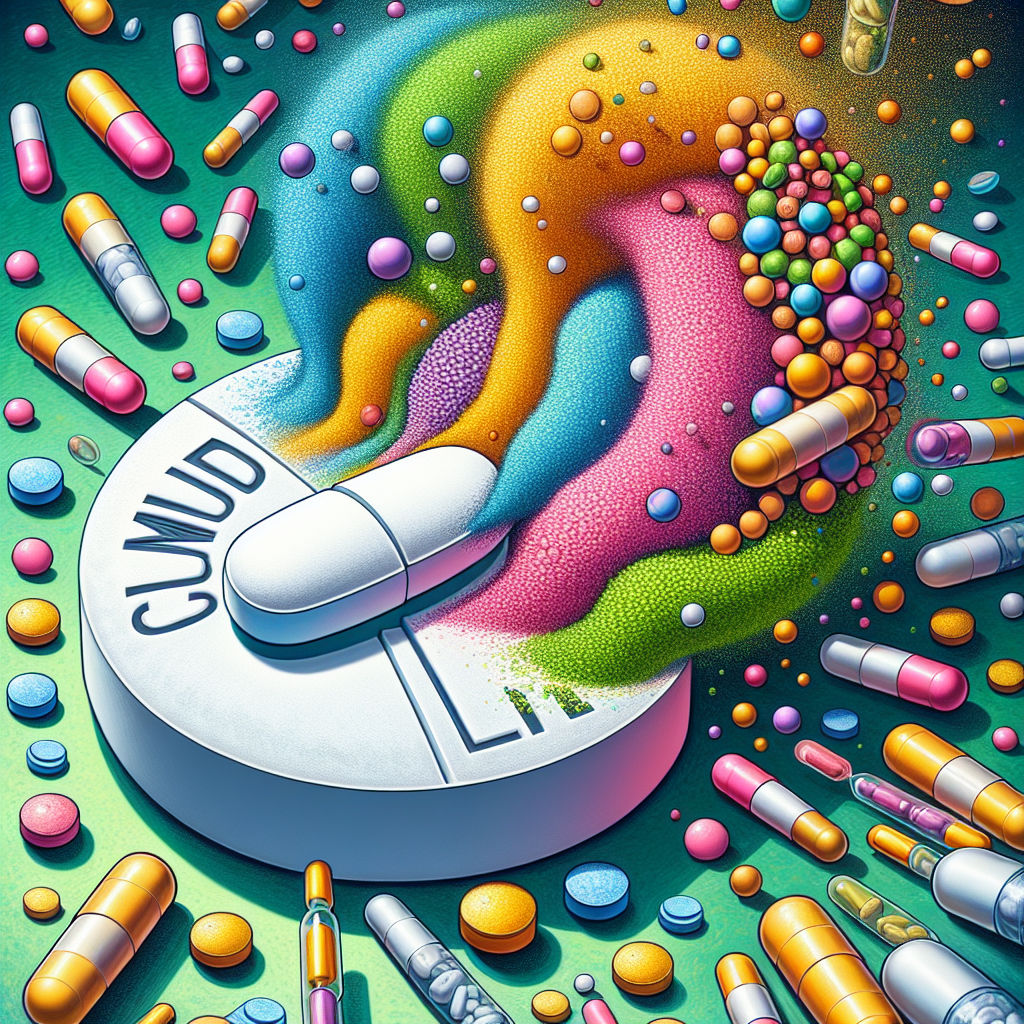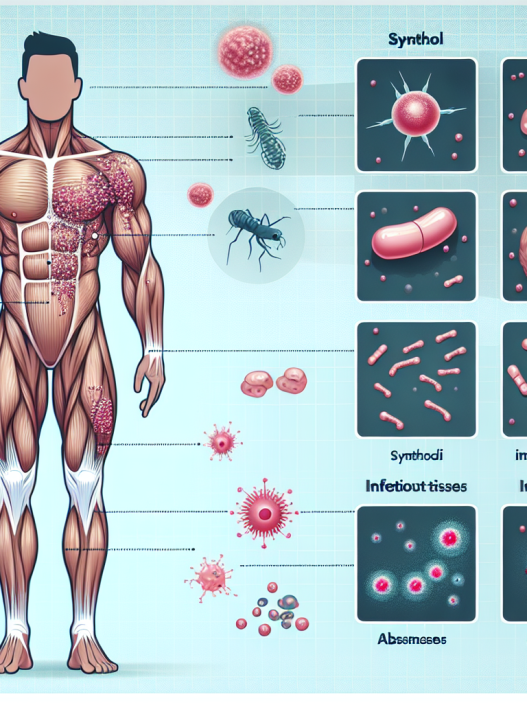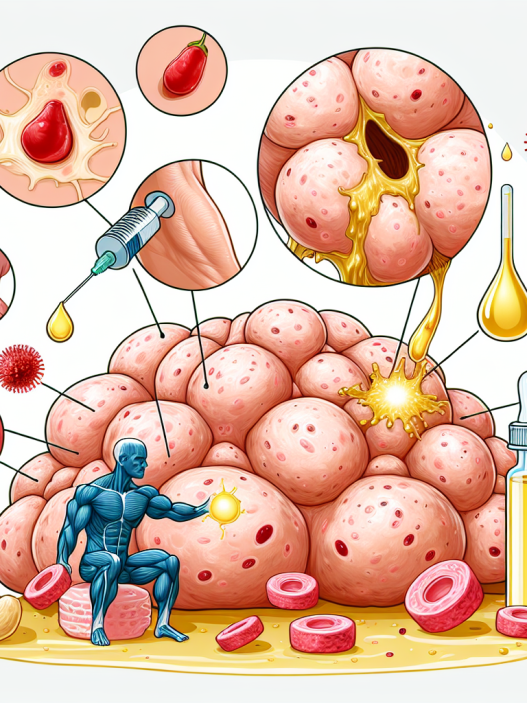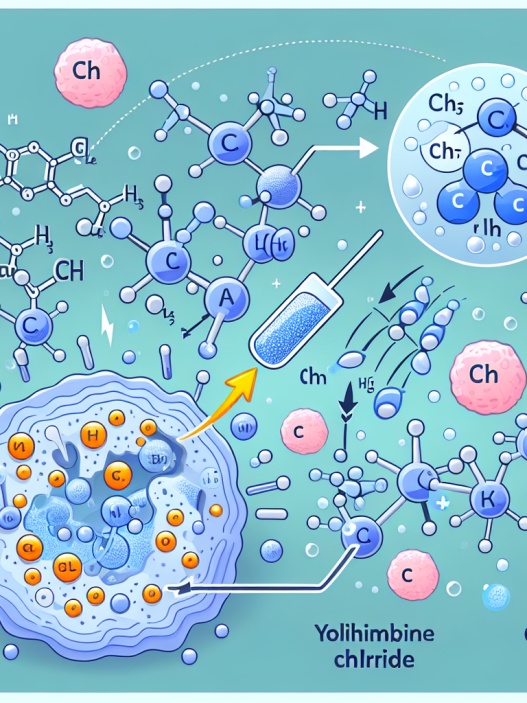-
Table of Contents
« Boostez votre fertilité naturellement avec Clomid et des compléments alimentaires adaptés ! »
Introduction
Clomid est un médicament prescrit pour traiter l’infertilité chez les femmes en stimulant l’ovulation. Cependant, il est important de noter que ce médicament peut interagir avec certains compléments alimentaires, ce qui peut avoir des effets indésirables sur la santé. Il est donc essentiel de comprendre comment ces interactions peuvent affecter l’efficacité du Clomid et la santé globale de la personne qui le prend. Dans cet article, nous allons discuter des interactions potentielles du Clomid avec les compléments alimentaires et des précautions à prendre lors de la prise de ces deux substances ensemble.
The Effects of Clomid and Nutritional Supplements on Fertility
Clomid, also known as clomiphene citrate, is a commonly prescribed medication for women who are struggling with infertility. It works by stimulating the release of hormones that are necessary for ovulation to occur. However, many women who are taking Clomid may also be taking nutritional supplements in hopes of improving their fertility. This raises the question: how do these supplements interact with Clomid and what effects do they have on fertility?
Firstly, it is important to understand that Clomid is a powerful medication that should only be taken under the guidance of a healthcare professional. It is not recommended to self-medicate or combine it with other medications or supplements without consulting a doctor first. This is because Clomid can have potential side effects and interactions with other substances.
One of the most commonly used supplements for fertility is folic acid. Folic acid is a B vitamin that is essential for the development of a healthy baby. It is often recommended for women who are trying to conceive, as it can help prevent birth defects. When taken with Clomid, folic acid has not been found to have any negative interactions. In fact, some studies have shown that folic acid may actually improve the effectiveness of Clomid in inducing ovulation.
Another popular supplement for fertility is Coenzyme Q10 (CoQ10). This antioxidant is believed to improve egg quality and increase the chances of conception. However, there is limited research on the interaction between CoQ10 and Clomid. Some studies have shown that CoQ10 may improve the response to Clomid in women with polycystic ovary syndrome (PCOS), while others have found no significant effects. More research is needed to determine the exact impact of CoQ10 on Clomid’s effectiveness.
Omega-3 fatty acids, commonly found in fish oil supplements, have also been linked to improved fertility. These essential fatty acids are important for reproductive health and may help regulate hormones. However, there is limited research on the interaction between omega-3 fatty acids and Clomid. Some studies have shown that omega-3 fatty acids may improve the response to Clomid in women with PCOS, while others have found no significant effects. As with CoQ10, more research is needed to fully understand the impact of omega-3 fatty acids on Clomid’s effectiveness.
One supplement that should be avoided while taking Clomid is chasteberry, also known as Vitex. This herb is often used to regulate hormones and improve fertility. However, it can interfere with the hormonal balance that Clomid is trying to achieve. This can decrease the effectiveness of Clomid and may even lead to negative side effects. It is important to consult with a doctor before taking any herbal supplements while on Clomid.
In addition to supplements, some women may also be taking other medications while on Clomid. It is important to inform your doctor of all medications and supplements you are taking, as they may interact with Clomid. For example, some antibiotics and antifungal medications can decrease the effectiveness of Clomid. It is important to follow your doctor’s instructions and avoid any potential interactions.
In conclusion, while there is limited research on the interaction between Clomid and nutritional supplements, it is important to consult with a healthcare professional before combining them. Folic acid has been found to have no negative interactions and may even improve Clomid’s effectiveness. CoQ10 and omega-3 fatty acids may also have potential benefits, but more research is needed. It is important to avoid chasteberry while on Clomid and to inform your doctor of all medications and supplements you are taking. With proper guidance and monitoring, the combination of Clomid and nutritional supplements may help improve fertility and increase the chances of conception.
Potential Interactions Between Clomid and Dietary Supplements
Clomid, also known as clomiphene citrate, is a commonly prescribed medication for women who are struggling with infertility. It works by stimulating the release of hormones that are necessary for ovulation to occur. While Clomid is generally safe and effective, it is important to be aware of potential interactions with other medications or supplements. In particular, there may be interactions between Clomid and certain dietary supplements.
Dietary supplements are products that contain vitamins, minerals, herbs, or other substances that are intended to supplement the diet. They are often marketed as a way to improve overall health and well-being. However, just because a supplement is labeled as « natural » does not mean it is completely safe to take with other medications. In fact, some supplements may interact with medications and cause unwanted side effects.
One potential interaction between Clomid and dietary supplements is with herbal supplements that contain phytoestrogens. Phytoestrogens are plant-based compounds that have estrogen-like effects in the body. Some common examples of phytoestrogen-containing supplements include black cohosh, red clover, and soy. These supplements may interfere with the action of Clomid, as they can bind to estrogen receptors and block the effects of Clomid. This can potentially reduce the effectiveness of Clomid in stimulating ovulation.
Another potential interaction is with supplements that contain high levels of vitamin C. Vitamin C is a powerful antioxidant that is often found in multivitamins and immune-boosting supplements. While vitamin C is generally safe and beneficial, high doses may interfere with the absorption of Clomid. This is because vitamin C can increase the acidity of the stomach, which can affect the absorption of medications. If you are taking Clomid, it is best to avoid high doses of vitamin C supplements.
In addition, some dietary supplements may contain ingredients that can affect hormone levels in the body. For example, supplements that contain DHEA (dehydroepiandrosterone) or melatonin may interfere with the hormonal balance that is necessary for Clomid to work effectively. DHEA is a hormone that is naturally produced by the body and is often marketed as an anti-aging supplement. However, it can also affect estrogen and testosterone levels, which can interfere with the action of Clomid. Similarly, melatonin is a hormone that regulates sleep and may also affect estrogen levels. It is important to talk to your doctor before taking any supplements while on Clomid.
It is also worth noting that some dietary supplements may contain ingredients that can cause side effects similar to those of Clomid. For example, some weight loss supplements may contain stimulants that can cause headaches, nausea, and mood changes. These side effects may be similar to those experienced by some women who take Clomid. Taking these supplements while on Clomid may exacerbate these side effects and make them more difficult to manage.
In conclusion, while dietary supplements may seem harmless, they can potentially interact with Clomid and affect its effectiveness. It is important to talk to your doctor before taking any supplements while on Clomid. Your doctor can advise you on which supplements are safe to take and which ones to avoid. It is also important to carefully read the labels of any supplements you are considering taking, and to be aware of potential interactions with medications. By being informed and cautious, you can ensure that your treatment with Clomid is as effective as possible.
Maximizing the Benefits of Clomid with Proper Nutrition and Supplements
Clomid, also known as clomiphene citrate, is a commonly prescribed medication for women who are struggling with infertility. It works by stimulating the release of hormones that are necessary for ovulation to occur. While Clomid can be effective on its own, many women wonder if there are ways to enhance its benefits. One area that has gained attention is the interaction between Clomid and dietary supplements. In this article, we will explore the potential interactions between Clomid and supplements, and how proper nutrition can maximize the benefits of this medication.
First and foremost, it is important to note that Clomid is a prescription medication and should only be taken under the guidance of a healthcare professional. This is especially important when considering the use of supplements alongside Clomid. It is crucial to consult with your doctor before adding any new supplements to your regimen, as they can interact with Clomid and potentially cause adverse effects.
One of the most commonly used supplements alongside Clomid is Coenzyme Q10 (CoQ10). This antioxidant has been shown to improve egg quality and increase the chances of conception. However, it is important to note that CoQ10 can also interact with Clomid. Both medications can cause an increase in estrogen levels, which can lead to side effects such as hot flashes and mood swings. Therefore, it is essential to discuss the use of CoQ10 with your doctor before taking it alongside Clomid.
Another supplement that has gained popularity among women taking Clomid is myo-inositol. This naturally occurring compound has been shown to improve ovulation and egg quality in women with polycystic ovary syndrome (PCOS). However, it is important to note that myo-inositol can also interact with Clomid. Both medications can cause an increase in insulin levels, which can lead to side effects such as weight gain and bloating. Therefore, it is crucial to discuss the use of myo-inositol with your doctor before taking it alongside Clomid.
In addition to supplements, proper nutrition is also essential for maximizing the benefits of Clomid. A well-balanced diet that includes a variety of fruits, vegetables, whole grains, and lean proteins can provide the necessary nutrients for optimal fertility. It is also important to limit processed foods and added sugars, as they can negatively impact hormone levels and overall health.
One nutrient that has been shown to have a positive impact on fertility is omega-3 fatty acids. These healthy fats can be found in foods such as salmon, sardines, and flaxseeds. They have been shown to improve egg quality and regulate hormone levels, making them a beneficial addition to a fertility-friendly diet.
Another important aspect of proper nutrition is maintaining a healthy weight. Being overweight or underweight can have a significant impact on fertility and can also affect the effectiveness of Clomid. Women who are overweight may have a harder time conceiving and may require higher doses of Clomid to stimulate ovulation. On the other hand, women who are underweight may not respond to Clomid at all. Therefore, it is crucial to maintain a healthy weight through a balanced diet and regular exercise.
In conclusion, while supplements and proper nutrition can enhance the benefits of Clomid, it is essential to consult with your doctor before adding anything new to your regimen. Some supplements can interact with Clomid and cause adverse effects, while others may not be suitable for your specific situation. Additionally, maintaining a healthy diet and weight can also play a significant role in the effectiveness of Clomid. By working closely with your doctor and making informed decisions, you can maximize the benefits of Clomid and increase your chances of conceiving.
Q&A
1) Quels sont les compléments alimentaires à éviter lors de la prise de Clomid ?
Il est recommandé d’éviter les compléments alimentaires contenant du soja, du ginseng et du millepertuis lors de la prise de Clomid, car ils peuvent interférer avec l’efficacité du médicament.
2) Est-il possible de prendre des compléments alimentaires en même temps que le Clomid ?
Il est préférable de consulter votre médecin avant de prendre des compléments alimentaires en même temps que le Clomid. Certains compléments peuvent interagir avec le médicament et affecter son efficacité.
3) Les compléments alimentaires peuvent-ils aider à améliorer l’efficacité du Clomid ?
Il n’y a pas suffisamment de preuves pour soutenir l’utilisation de compléments alimentaires pour améliorer l’efficacité du Clomid. Il est important de suivre les instructions de votre médecin et de ne pas prendre de compléments sans son avis.








